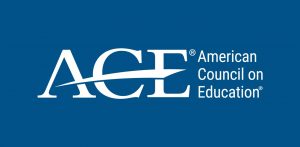Twenty-first century colleges and universities face numerous challenges related to low-income, first-generation and minority student access, retention, and completion. While addressing these challenges requires effort on many fronts, a critical requirement for such transformation is strong institutional senior leadership. Senior leaders define the values, directions, and priorities of a campus.
Addressing inequity in higher education will require a willingness and ability to identify, develop, and implement a student success agenda that puts equity front and center. Unfortunately, there are few guidelines for higher education leaders who want to make deep, meaningful, and lasting change to the policies and practices that promote inequity on their campuses.
 To fill this void The American Council of Education (ACE) and the University of Southern California Pullias Center (USCPC) have joined together to study ways the ways in which leaders across colleges and universities conceptualize and practice leadership in the face of challenging and complex diversity and equity imperatives.
To fill this void The American Council of Education (ACE) and the University of Southern California Pullias Center (USCPC) have joined together to study ways the ways in which leaders across colleges and universities conceptualize and practice leadership in the face of challenging and complex diversity and equity imperatives.
Through initial funding from the Sloan Foundation, researchers carried out pilot research on equity-minded leadership on eight campuses. This research involved interviews with key leaders whose institutions were successfully closing equity gaps. The pilot project uncovered a set of characteristics and practices that are typical of equity-minded leadership teams and generated a classification of different models of such teams.
With grant support from AVDF, project leaders Dr. Adrianna Kezar from USCPC and Dr. Hollie Chessman from ACE will more deeply investigate four of these eight institutions: the University of Michigan, the University of Richmond, Foothill College, and the University of Rutgers at Newark, each with a distinctive approach to equity-minded leadership.
The research will culminate in reports with key findings and recommendations. The team will also produce a multimedia resource toolkit, design an online learning module to be offered within ACE’s leadership training program, and convene a virtual summit for higher education leaders. Collectively, these outputs will build on the team’s pilot work to generate a deeper and broader understanding of what equity-minded leadership looks like, how it enables institutions to better serve all of their students, and how to develop and sustain it on a college or university campus.
To learn more about early findings from the Equity Minded Leadership project, read their recently released report here.
